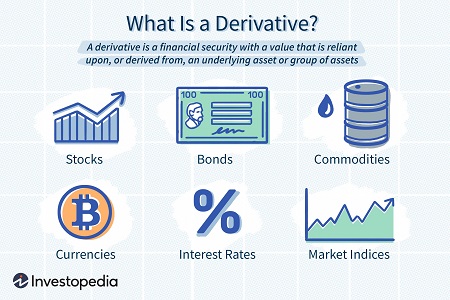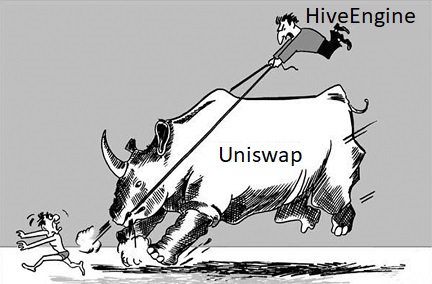
Thinking more on proof-of-burn mechanics, I begin to realize that this is derivative-consensus: consensus that is derived from the tokenomics and security of the other chain being burned. Any network or dapp that allows coins from another network to be burned in exchange for native assets inevitably trusts the other network's security.
If I create an asset that can only be minted when HBD is destroyed, I'm trusting Hive consensus and Hive witnesses to follow the rules and defend the network from harm and counterfeit inflation. Likewise if I burn LEO to create new assets I am trusting LEO security and tokenomics (and thus the entire network to succeed).
How much security does LEO have?
There will be a bit more when we get these consensus nodes up and running, but those consensus nodes themselves are yet again derivatives of Hive; second-layer consensus. LEO consensus nodes will trust Hive blocks to be 100% accurate, which is fine.
Hive has a system for deleting bad blocks, and we saw that system in action during the Steem hostile takeover as backup witnesses constantly attempted to transfer funds and/or initiate powerdowns of locked accounts. This forced the sockpuppet witnesses consensus-witnesses to roll-back the chain many many times, ruining many a Splinterlands game.
WOW: 17586 Block Difference Between Steem and Hive
15 hours of frozen chain.
In any case, LEO trusts the Hive network 100%. Is that a bad thing? What's the tradeoff? Well, for starters 100% of all LEO inflation is controlled by stake holders. There is no block reward, as the operations involved are all stored directly on Hive, which already has separate block rewards and security, which LEO then capitalizes on to build community value.
100% inflation control
Pretty good. We pay $0 for security and pass on 100% of the savings to the stake-holder. Seems like people are taking this deal and loving it. Gogo LEO we believe. When LEO $1? When LEO moon?

Nested derivatives.
So if I created a Proof-of-Burn game that destroyed LEO for magic dust, something I am seriously considering... the dust created would be a derivative of a derivative... pretty weird. I'm sure the crypto madness has only just begun. Think DeFi is weird? Just wait a couple years.
This is bad for Hive, right?!
Building value on Hive is bad for Hive?
No comment.
Governance
So what I'm envisioning is those who hold the index derivative can use the same token to control the network in terms of listings, delistings, and inflation schedule.
List
You certainly wouldn't want to list just any token. An indexed derivative is trusting every token it lists to enforce proper security.
Delist
Obviously just the opposite of listing. If the asset in question becomes corrupted or loses its value it can be stripped of the ability to generate assets.
Inflation Schedule
How much derivative asset is created when XYZ token is burned?
How fast do these burns accrue diminishing returns (log curve)?
Want kind of caps or circuit breakers are in place to avoid failure?
Why LEO?
Basically anything I create is going to be on Hive, so branching out to other networks before having a popular working product is out of the question. Originally I was thinking this was only going to work with burning HBD due to the "stable" nature and my political motivation to push my own CDP collateral agenda.Basically if I can spike the price of HBD >$1 it gives the idea more merit and urgency.
But now that LEO is coming out with layer2 consensus nodes I could theoretically just one run of these nodes to perform the same type of burn on LEO instead of HBD. Obviously I'd eventually want both assets listed but hey you never know, maybe I could get a proposal funded by that time. That would be ideal in order to protest the ninjamine being dumped into the dev fund, as I could just burn the HBD I received from the fund to @null in order to farm the governance token and "magic dust" of my own product.
Sinks
Sinks are an important part of any economy. The first phase is to try and generate inflation in the most profitable ways possible. With POW coins this means low inflation and 100% of it going to secure the network via block rewards to the miners. In terms of LEO and proof-of-burn assets it's a bit different, as inflation can be splashed in a lot of different places, especially if token sinks are trailing behind as a deflationary mechanic, soaking up rogue inflation.

~~~ embed:1348987899543433220 twitter metadata:cmVhbE5lZFNjb3R0fHxodHRwczovL3R3aXR0ZXIuY29tL3JlYWxOZWRTY290dC9zdGF0dXMvMTM0ODk4Nzg5OTU0MzQzMzIyMHw= ~~~
Also, does anyone think it's weird that Ned Scott joins a group called Bitcoinhackers.org and then HiveEngine gets hacked for BTC and Hive but then the Hive gets returned? lol... what... It's more fun to speculate here than to actually dig deeper on this one. Don't rain on my parade. Exit scam? Collusion? Where my conspiracy peeps at?
Breaking away from HiveEngine couldn't come any sooner. We obviously need multiple nodes validating the network. Hopefully there's not any issue with coming to consensus with the randomness of LEO miners. It obviously can't be a local Random() function.
Miner Attack Vector (check comments for solution)
Ah nevermind I forgot I was misinterpreting this issue. IIRC the randomness is determined by Hive witnesses (signature of current witness plus the previous sig). Once again we see that LEO security is 100% reliant on Hive witnesses, right down to the randomness of mining.
RCs
It's hard to imagine Hive running out of RCs, but in all likelihood that is exactly what's going to happen at the end of the year during the mega-bubble. Many do not remember how crazy it was during 2017. I remember running out of bandwidth; do you? This community has stress-tested the RC system zero times, as RCs were created in the wake of the 2017 disaster. Should be interesting to see the superiority of the RC system play out and if there are any bugs lurking.
Accounts that have low stake (say less than 50 HP) are going to have trouble posting/commenting/upvoting as much as they would like. Suddenly, playing a Splinterlands game will be the privilege of the elite until those transactions are taken off-chain to a more efficient database. People will think twice before spending RCs: they'll have actual value.

Just increase the blocksize, bro!
Forcing dozens of nodes to store data permanently is not a scale-friendly solution. I have brought up this issue many times and even top witnesses are like "we'll just increase the size of the blocks". Will you? That makes the cost of running a node higher for every single node in the network. At a certain point that just not an option. This is why we are constantly upgrading scaling solutions like MIRA and Condenser optimizations.
Even at a 65KB limit per block, that's potentially 1.785GB of RAW data added to the chain per day (per node). Raw data is then turned into even more useful data and quick lookup database tables/indexes stored in expensive RAM and offered to dapps built on top of the protocol via API. That's without raising the blocksize limit. How many nodes on Hive can afford that? Users will shut down their nodes if they become too expensive.
Bandwidth isn't free.
The higher we raise the blocksize limit the more prohibitively expensive it is to run nodes. These are the tradeoffs. Many Bitcoin forks have resulted from this exact argument, and to this day Bitcoin blocks remain quite small to accommodate cheap server costs and a more decentralized/robust/secure network. Bitcoin chooses the hardcore resilient option so we don't have to, as the Granddaddy network protects us all from that mean ol' fiat and centralized/bordered regulations.

Better have them RCs!
So it becomes obvious that if you want to build on Hive, you better have a ton of Hive Power so when users actually start competing for RCs and on-chain bandwidth, your dapp actually has enough bandwidth to work during the shitstorm that is a mega-bubble. Without the ability to scale any network loses a lot of users during the bear market. Bloated blockchains need time to deflate.
Conclusion
There's a lot going on right now and a lot to think about. Personally I think burning assets to generate other assets is going to be all the rage within a few years. Communities love a good deflation burn, even if the majority of market cap value is based on growth and demand for the underlying asset. Lowering the supply can't hurt.
I continue to plug away at my Magic Words database.
Things should get interesting once these LEO consensus nodes roll in.
Deuces
Posted Using LeoFinance Beta
Having one node as a central point of failure had always been a concern of mine, the move to enable other nodes sign blocks for Leofinance is ultimately worth it. Yikes, this space is going to get a lot more complicated economic wise when all the plans roll out. Governance token, Leo token, microblogging token...all that. I yearn for more posts talking about these matters...I guess I have to wait
Posted Using LeoFinance Beta
Yeah I'm not a big fan of creating multiple tokens if it's not necessary, but we'll know more when the system rolls out.
Your observations and questions are very astute and they get at the heart of this constant battle between more decentralization vs more centralization. On the one hand you get more security in the form of more people verifying and establishing consensus and on the other hand you get more scalability, efficiency, and speed. These are just the trade offs when it comes to service quality and security, but there are also political / governance trade offs as well as economic incentive trade offs that parallels these technology trade off decisions.
People look at decentralization and centralization in black and white ways, but the optimum mix is somewhere in between. I am finding that as the crypto ecosystem keeps evolving that we start adding things like second layer tokens which looks somewhat similar to the multi-layer system of the Federal Reserve Bank over private banks--to be sure there are still a lot of differences. I am just noticing a FEW similarities.
I have an outsider perspective on cryptocurrencies because I once worked at the Department of Labor as an economist studying inflation and so inflation in Cryptocurrencies is like watching a "natural experiment" happen in front of me. I am learning a lot. This is a great post!
Posted Using LeoFinance Beta
Dude did not know about the Ned joining bitcoinhackers. What a story if you could go deeper into it and see how possible it can be. Thanks!
!wine
Cheers, @mawit07 You Successfully Shared 0.100 WINE With @edicted.
You Earned 0.100 WINE As Curation Reward.
You Utilized 2/3 Successful Calls.
WINE Current Market Price : 1.000 HIVE
Ned hacking hiveengine?
Well, I think creation of wealth on hive blockchain is great, that's my opinion and i am no dev.
Also, I have RC issue at the moment, as I have been creating and engaging a lot lately. The rc will of course be one reason for hive to increase on the long run
Posted Using LeoFinance Beta
I had RC issues too when I started a week ago. Then I was lucky enough to where one of the Hivers delegated me 100 HP. I don't think I have been making good use of his delegations from an economics point of view as I haven't used it to create post that earn much Hive.
I have just been using it to interact with people in the comments which is not an "efficient" use of RC. It was really sad a week ago when I first started cause I would see a lot of fascinating stuff and not be able to interact.
Whatever the people with power decide, I do hope that we can create a space where people can share ideas without economics being the primary concern
Posted Using LeoFinance Beta
Interacting with people is a good way to start, maybe better than just post directly. Although an introductory post is another good way to go.
Interesting, you will have a good perspective of edicted's posts then. I was looking for opinions of people that can understand his posts more deeply than I do, will follow your observations then :).
Posted Using LeoFinance Beta
I try to look for where there are parallels and where there are differences in the the current banking system and in the crypto world. The challenges for me are to learn where crypto is different because those are the areas that I don't have experience in.
I have not seen on the "inside" what governance looks like, but probably I could learn some of it if I just read more white papers and followed more closely the changes that people propose and the changes that get adopted in different blockchains.
I understand pretty clearly how the federal reserve bank works, but in the United States there is just one "Fed" in the crypto world there is a lot to learn because there are a lot of blockchains and each of them are different.
Posted Using LeoFinance Beta
I trust leo and i do not think burning other tokens to mint other is a good 💡 idea
Posted Using LeoFinance Beta
The volume is crazy on uni swap. I like the picture with HE and US :)
At some point, hive is connected to more blockchains and we will see a lot of value transfers to the network. I hope we see in 2021 another Leo success story on hive.
Hardware becomes cheaper and cheaper. Nodes should become cheaper to run because of improvements and cheaper hardware.
As long it can be increased if needed in an easy way. I see no reason to increase today. The plan should be on the table if needed to adapt quickly.
Because Hive runs on 1% of possible transactions, we are fine. But this let me also think:
"Why not defi Smartconttracts on mainchain to use more of possible transactions"
Defi brings money into hive and shows the true power of free transactions and hivepower. And if it would be a big success, block sizes can be increased at any time.
Uniswap like Dapp on Hive would be so cool and usefull.
Posted Using LeoFinance Beta